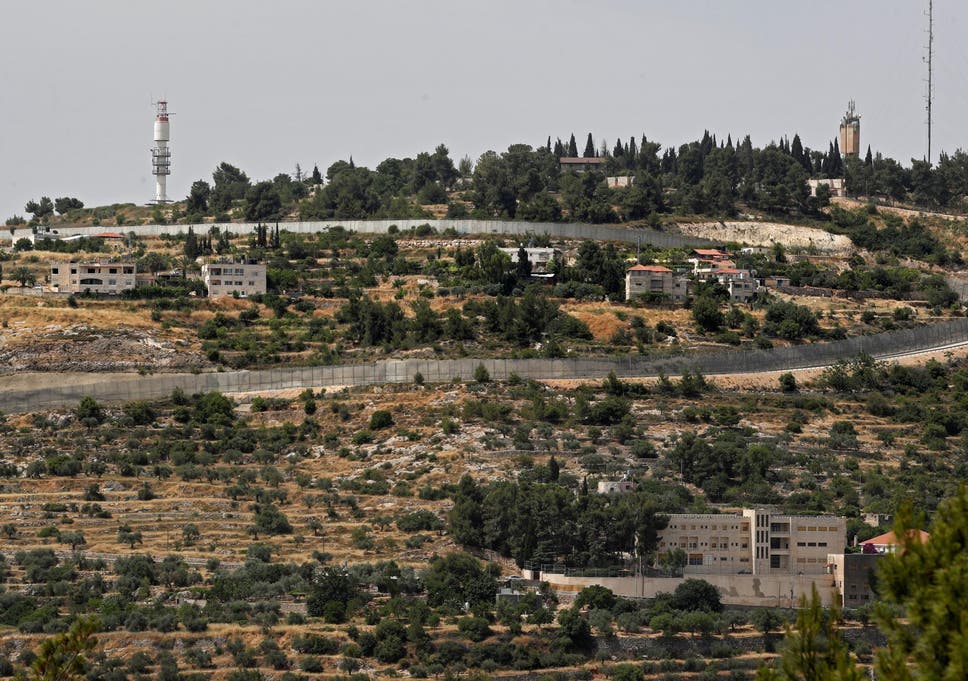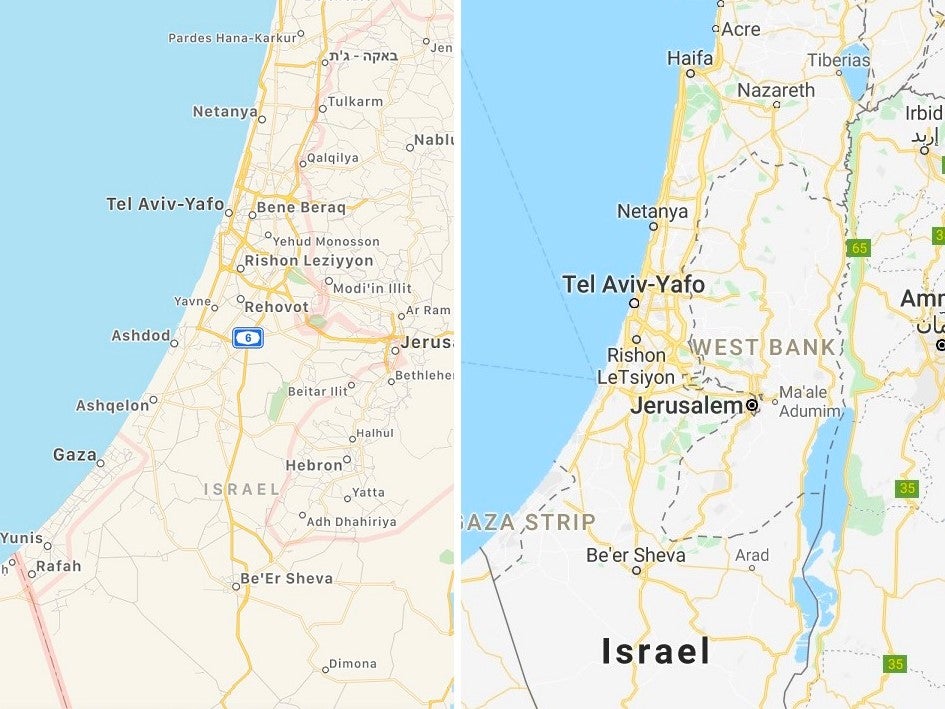
Apple and Google have been accused of deleting Palestine from their online maps, despite it never being labelled in the first place.
Searching for Palestine on Apple Maps and Google Maps shows an outline for the Gaza Strip and West Bank territories, but no labels for Palestine.
The claims that it was removed appear to stem from a viral Instagram post by a user called “Astagfirvlah” on Wednesday, which accused the technology giants of “officially removing” Palestine from their maps.
An update has since been added to the post, stating that it contains “false information”. However news articles and posts on other social media platforms have continued to spread the claims, with supporters of the Palestinian cause accusing the tech firm of supporting Israel's occupation.
Palestine is recognised by the United Nations and 136 of its members as an independent state, but not in the US where Apple and Google are headquartered.
Google did not immediately respond to a request for comment about the latest accusations but a section of its website dedicated to disputed boundaries states: “Disputed boundaries are displayed as a dashed grey line. The places involved don’t agree on a boundary.”
Israel captured and occupied the West Bank, Gaza strip and Golan Heights during the 1967 war. Israel asserts that it no longer occupies Gaza after dismantling settlements in 2005. However, as it retains significant control over the coastal territory's airspace and borders, Gaza is still classified as occupied land by the UN.
Monitoring groups say there are more than 130 Israeli settlements in the West Bank, despite being deemed illegal under international law.

It is not the first time Google has been accused of removing the name Palestine from its popular map service.
In 2016, a Change.org petition claimed that all mention of Palestine “was removed at the insistence of the Israeli government,” adding that “Google’s two Jewish founders have close links with Israel and its leaders.”
The ‘Google: Put Palestine on your Maps!’ petition remains active and to date has received more than 800,000 signatures.
Last month, Israeli prime minister Benjamin Netanyahu promised to begin annexing parts of the occupied West Bank, prompting more than 1,000 parliamentarians from across Europe to sign a joint letter of protest.
The letter stated: "Failure to adequately respond would encourage other states with territorial claims to disregard basic principles of international law."
UN secretary-general Antonio Guterres said any annexation "would be a major factor to destabilised the region" and called on Israel to listen to the condemnation of its plans.







